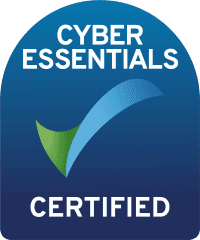What Schools Need to Know
Payroll compliance in the education sector is a critical responsibility for schools, colleges, and universities. Ensuring that staff are paid correctly, on time, and in accordance with tax laws and employment regulations is essential for financial stability and legal adherence. However, the complexity of payroll legislation and sector-specific challenges make compliance a daunting task.
Understanding Payroll Compliance in Education
Payroll compliance involves adhering to national tax regulations, pension schemes, employment laws, and reporting requirements. Failure to comply can result in hefty fines, reputational damage, and operational disruptions. Educational institutions must keep up with evolving legislation to avoid penalties and ensure payroll accuracy.
Key Payroll Compliance Requirements for Schools
1. PAYE (Pay As You Earn) and HMRC Requirements
Schools must comply with HMRC’s PAYE system, which ensures that Income Tax and National Insurance Contributions (NICs) are deducted from employee salaries and submitted correctly (HMRC Payroll Guidance). Late or incorrect submissions can lead to penalties.
🔍 Quick Tip: Use HMRC's real-time information (RTI) system to submit payroll data promptly and avoid penalties.
2. Pension Compliance: Teachers' Pension Scheme (TPS) and LGPS
Schools must enrol eligible teaching staff in the Teachers' Pension Scheme (TPS) (TPS Website) and non-teaching staff in the Local Government Pension Scheme (LGPS) (LGPS Employer Resources). Compliance includes ensuring the correct contributions, meeting reporting deadlines, and keeping staff informed about their pension entitlements.
3. Auto-Enrolment and Pension Contributions
Under the Pensions Act 2008, schools must automatically enrol eligible employees into a workplace pension scheme and make contributions (The Pensions Regulator). Schools must ensure they meet minimum contribution rates and provide employees with opt-out options if necessary.
4. Minimum Wage and Holiday Pay Compliance
Educational institutions must adhere to the National Minimum Wage (NMW) and National Living Wage (NLW) regulations, ensuring all staff receive fair pay. Additionally, holiday entitlements must be correctly calculated for term-time and part-time staff, in line with UK employment law (Department for Education).
🔎 Common Mistake: Miscalculating holiday pay for term-time employees. Double-check your calculations!
5. Statutory Payments (Sick Pay, Maternity & Paternity Leave)
Schools must comply with statutory payments, including Statutory Sick Pay (SSP), Statutory Maternity Pay (SMP), and Statutory Paternity Pay (SPP). Employers must maintain accurate records and submit claims to HMRC where applicable.
6. IR35 and Off-Payroll Working Rules
Schools that engage external contractors or temporary staff must determine their employment status under IR35 rules. Misclassification can lead to tax liabilities and penalties, so ensuring compliance with off-payroll working rules is crucial.
🤔 Ask Yourself: Are your contractors genuinely self-employed, or should they be on PAYE?

How Schools Can Ensure Payroll Compliance
1. Stay Updated with Legislation
Payroll laws and tax regulations frequently change. Schools should regularly review HMRC updates, Department for Education guidance, and industry best practices to stay compliant.
📌 Resource Alert: Bookmark the HMRC Employer Bulletin for the latest updates.
2. Implement Robust Payroll Systems
A well-managed payroll system with automated compliance checks can help schools meet tax and pension obligations, calculate pay accurately, and streamline payroll processes.
3. Conduct Regular Payroll Audits
Regular payroll audits help identify compliance gaps, prevent payroll errors, and ensure accurate record-keeping.
4. Outsource Payroll to a Specialist Provider
Managing payroll in-house can be complex and time-consuming. By outsourcing to Crystal HR & Payroll, schools can ensure:
- Full compliance with HMRC, TPS, and LGPS regulations
- Accurate tax, pension, and wage calculations
- Automated payroll processes and error-free reporting
- Reduced administrative burden and operational costs
📞 Want a Payroll Health Check? Contact Crystal HR & Payroll today to assess your school’s compliance status!
Why Choose Crystal HR & Payroll?
At Crystal HR & Payroll, we specialise in education sector payroll management, ensuring schools meet all legal obligations while simplifying payroll administration. Our expert team stays ahead of compliance updates, guaranteeing peace of mind for educational institutions.
📅 Book a Demo: See how Crystal HR & Payroll can streamline your school's payroll processes by scheduling a consultation.
Get Expert Payroll Support Today
Don’t let payroll compliance become a burden for your school. Contact Crystal HR & Payroll today to streamline your payroll operations and ensure full compliance with UK regulations.
📞 Call us at 0345 564 5774 or fill in our form.
If you found this article useful, you might want to checkout these other articles:





